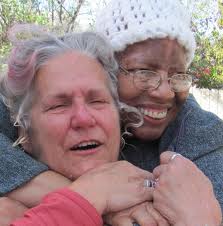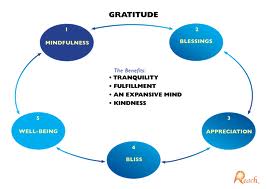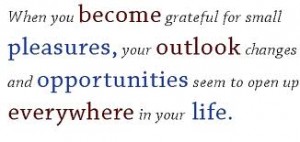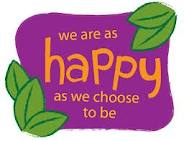Throughout our day we will experience a whole gamut of emotions and feelings: some negative: maybe frustration, displeasure, disappointment or sadness; others positive, for example happiness, gratitude, satisfaction or laughter. When you look back over your day, what is it that makes you smile, or feel gratitude or pleasure? In the normal routine of our daily lives, it is usually the small  things that count because it is the small things that make up our general perspective of our lives. Yes, holidays are fantastic experiences, yes salary increases are important financially and yes, good health is of extreme value to us. However, it is the minutae of life that are equally important because they all add up.
things that count because it is the small things that make up our general perspective of our lives. Yes, holidays are fantastic experiences, yes salary increases are important financially and yes, good health is of extreme value to us. However, it is the minutae of life that are equally important because they all add up.
The genuine smile from a stranger; the kindness of the person who let you into the traffic flow when you were running late for work; the  thoughtful words of a friend when you need a caring ear; the compliment from a colleague when you’re feeling low; sharing a hug with a loved one … All of these things are important to us because they demonstrate a generosity of spirit. They are all given freely and authentically, with no expectation of anything in return.
thoughtful words of a friend when you need a caring ear; the compliment from a colleague when you’re feeling low; sharing a hug with a loved one … All of these things are important to us because they demonstrate a generosity of spirit. They are all given freely and authentically, with no expectation of anything in return.
They are given for no other reason than because we can.
Cultivating a generosity of spirit is essentially good for all of us. Isn’t it nice to smile at a stranger and have your smile reciprocated? Or to listen to a friend’s problems, knowing that they are equally there for you when you need them. Being considerate to others helps us to feel integrated, it encourages acceptance and usually produces consideration in return. When we are feeling good about life, it is easy to share those feelings around. We whistle as we go through our day, we are a little ray of sunshine and everybody gets to bathe in the warmth of our happiness. However when we are feeling down, we may distance ourselves and it can seem very difficult to raise even the most tentative smile. It is when we are feeling low, that generosity of spirit is most important. If we turn our thoughts to others, and take the time to extend some consideration to our family, colleagues, peers, in fact anybody, we will reap positive benefits in return and that will help to lift our spirits and find a better perspective.
Some might call it Karma, some coincidence or luck, but whatever you want to call it, try it, it really works!







 g? Your bosses? Your clients? Your childrens? Husbands? Parents? … or Yours? Who is the only person who can ever really know exactly what it is that ensures your happiness, peace of mind, contentment? And who is the only person who should really be expected to put in the time and commitment to ensure that happiness, peace of mind and contentment?
g? Your bosses? Your clients? Your childrens? Husbands? Parents? … or Yours? Who is the only person who can ever really know exactly what it is that ensures your happiness, peace of mind, contentment? And who is the only person who should really be expected to put in the time and commitment to ensure that happiness, peace of mind and contentment?
 dy/mind. Right now your emotions may be a raging torrent of anger, frustration or desperation, or maybe a gentle loving stream of contentment, or even a pool of calm and peacefulness. Whatever type of emotion is present within you, it will affect your thinking, your behaviour and your perception of the current moment.
dy/mind. Right now your emotions may be a raging torrent of anger, frustration or desperation, or maybe a gentle loving stream of contentment, or even a pool of calm and peacefulness. Whatever type of emotion is present within you, it will affect your thinking, your behaviour and your perception of the current moment.  instead of frustration, and joy instead of anger, is to be more aware of our thoughts and to choose them wisely. If you don’t want to be unhappy, you can learn to challenge those unhappy thoughts, release them and change them for neutral or happy thoughts. If you no longer wish to feel stuck, then lift the lid to your thoughts and allow yourself to create the answers you need for change in your life. It may sound simple and that is because it is actually very straightforward.
instead of frustration, and joy instead of anger, is to be more aware of our thoughts and to choose them wisely. If you don’t want to be unhappy, you can learn to challenge those unhappy thoughts, release them and change them for neutral or happy thoughts. If you no longer wish to feel stuck, then lift the lid to your thoughts and allow yourself to create the answers you need for change in your life. It may sound simple and that is because it is actually very straightforward.  emotions and sticking to it. With a little determination, some support from people around you and maybe some professional guidance, you can decide to choose your thoughts and manage your emotions successfully.
emotions and sticking to it. With a little determination, some support from people around you and maybe some professional guidance, you can decide to choose your thoughts and manage your emotions successfully.